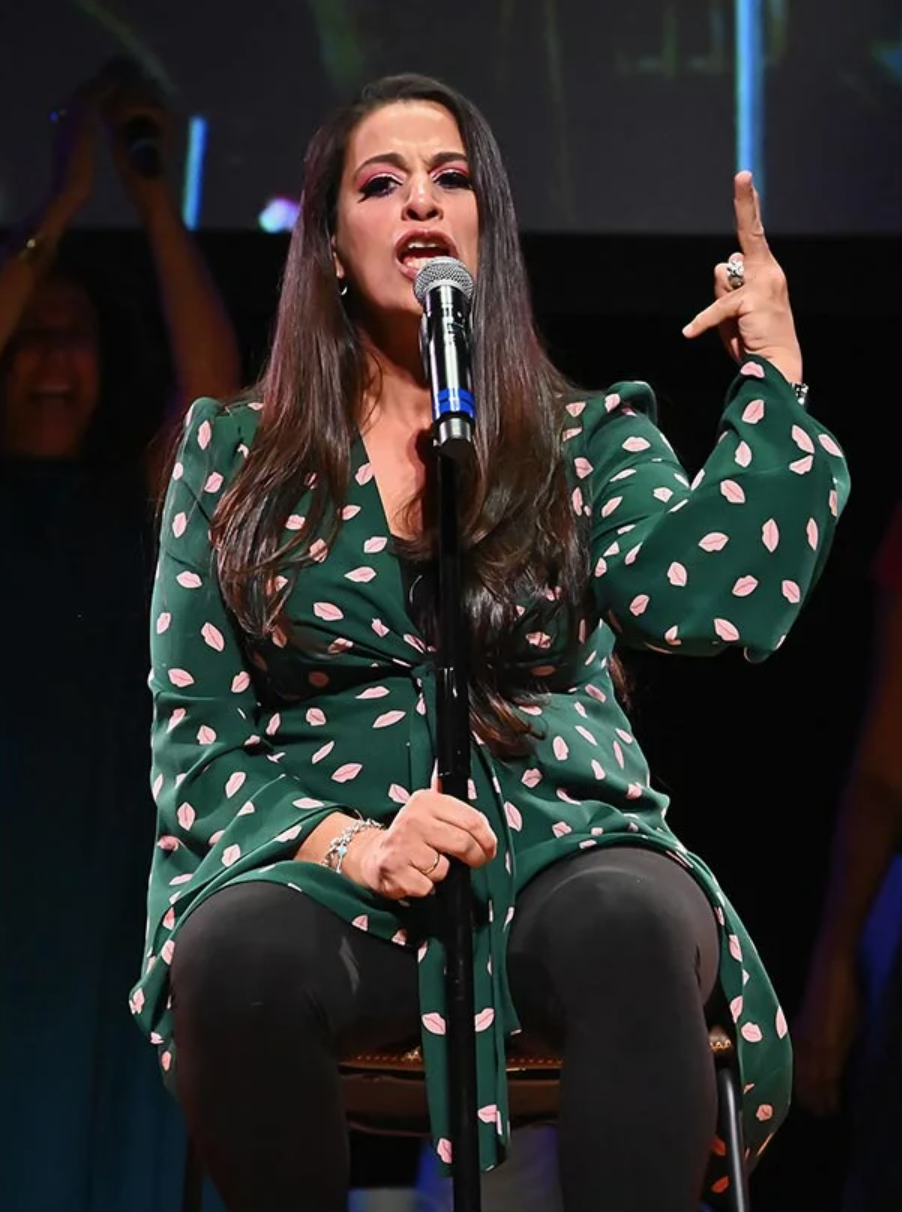
Representation of
DISABILITY
Who Gets Represented & How
Representations of Mental Health
Image: Close up of a person holding a video camera Photo by Terje Sollie from Pexels
Overview
In this section we will dive into the terminology and language around mental health and think about representation. Combating stigma related to mental illness, suicide, and substance use starts with how we use language, and this is something that continuously evolves. It is important to be aware of any outdated language being used in the media and around us every day. Advocate for the use of accurate and respectful language as you communicate with others and be mindful of the impact of language (Mental Health Commission of Canada, 2020).
Developing an Understanding
“Crazy is a word that does some dirty cultural work. It is a flip way of referencing mental illness, yes. But it’s also a slippery label that has little to do with how a person’s brain works and everything to do with how she is culturally received. Calling someone crazy is the ultimate silencing technique. It robs a person of her very subjectivity”
(Hess, 2021)
So begins Amanda Hess’s 2021 New York Times interview with musician Sinead O’Connor opens in new window, who for years has been maligned in the media by fellow musicians and celebrities for her anti-establishment stance and refusal to subscribe to music industry ideals.
The history of negative portrayals of Mad women musicians in the media is long and storied and often follows the same trajectory every time: mass publicized “breakdowns” followed by intense media scrutiny, constant tabloid stalking and monitoring of any kind of physical change that might indicate signs of dwindling mental health; all published in newspapers, tabloids and social media. Whereas male musicians like the Rolling Stones, Jim Morrison and the Who have their histories of substance use, complicated personal lives and occasional admittance into psychiatric institutions considered part of their mythology as rock stars, women in music are not afforded the same leeway. Think O’Connor, Britney Spears, Etta James, Amy Winehouse – women who rose to stardom amid personal troubles, forced to re-live their trauma over and over in the public eye.
Jijian Voronka’s 2008 article Making Bipolar Britney: Proliferating Psychiatric Diagnoses through Tabloid Media examines how public facing views of Mad celebrities impact the field of psychiatry. For instance, “how Britney manages, or refuses to manage, the making of herself as a mentally ill patient, will impact (either positively or negatively) how our culture responds to both psy and mad practices alike.” (Voronka, 2008).
Stigma creates stigma, and the cycle of ableism continues, unless we choose to disrupt these harmful narratives.
Combating stigma related to mental illness, suicide, and substance use starts with how we use language — something that continuously evolves. That’s why it is important to be aware of any outdated language being used in the media and around us every day. You can be a champion against stigma when advocating the use of accurate and respectful language so when you communicate with others, be mindful of the impact of your language (Mental Health Commission of Canada, 2021).
Stigmatizing
Respectful
Stigmatizing:
It drives me crazy.
Respectful:
It bothers/annoys/frustrates me.
Stigmatizing:
The blind, the visually impaired
Respectful:
Person living with vision loss, person who is blind, person who has a vision impairment
Stigmatizing:
This is nuts.
Respectful:
This is interesting/strange/peculiar/funny.
Stigmatizing:
Crippled or lame
Respectful:
Person with a disability or person with a/who has a motion disability; person with a spinal cord injury, etc.
Stigmatizing:
This individual suffers from depression.
Respectful:
They live with/are experiencing depression.
Stigmatizing:
Mentally ill or insane person
Respectful:
Person living with a mental health problem or illness
Stigmatizing:
Committed suicide, successful suicide
Respectful:
Died by suicide
Stigmatizing:
Failed or unsuccessful suicide attempt
Respectful:
Attempted suicide
Stigmatizing:
Substance abuse
Respectful:
Substance use or substance use disorder
Stigmatizing:
Everyone who is a junkie...
Respectful:
Everyone who uses substances...
Stigmatizing:
They used to be an addict.
Respectful:
They are in recovery.
(Source: Mental Health Commission of Canada: Reference Guide - Safer Language opens in new window)
You can download a copy of the Language Matters Cheat Sheet using the button below.

In a 2020 post titled “Say the Word’ on Refinery 29 opens in new window in 2020, Maysoon Zayid confronts their own use of ableist language.
“I was born and raised in the great state of New Jersey. “Stupid” and “crazy” were two of my favorite words. I dreamed of being stupid rich and living in a crazy mansion down the shore. I now realize that both words are ableist, and I have chosen to excise them from my vocabulary” (Zayid, 2020).
Zayid goes on to say, “Ableism is when people are dehumanized or discriminated against due to their disability, or when disability is stigmatized, stereotyped, or pitied. Ableist language uses terms associated with disability to mock, insult, or degrade everything from the weather to politicians” (Zayid, 2020).

Task
It is important to try to recognize insulting terms and stop using or tolerating them.
As an example, on May 29, 2021, the following statements were heard on the radio news:
- The traffic today was crazy!
- That person not wearing a mask is a moron!
- Did you watch that hockey game last night? It was nuts!
- What a stupid amount of money to pay for that!
It takes effort, but it is possible to consider and remove ableist words from your vocabulary. Challenge yourself and think of as many words as possible you can use instead of the word “crazy” and type them into the box below.
There can be many different answers. Here a few options:
- Wild
- Irrational
- Ridiculous
- Silly
- Absurd
- Strange
- Unnatural
- Outrageous
- Out of this world
- Exciting
- Infatuated
- Passionate
- Enthusiastic
- Impractical
- Senseless
- Bananas
On their website The Rolling Explorer opens in new window, Jessica Ping-Wild suggests alternative words for ‘crazy’ in a sentence:
Stigmatizing
Respectful
Instead of:
He was crazy about her.
Try:
He was head over heels for her.
Instead of:
Their whole family is crazy about baseball.
Try:
Their whole family loves baseball. They never miss a game!
Instead of:
That will never work, it’s just another crazy scheme.
Try:
That’s an impractical plan. Let’s try something else.
Instead of:
Women are crazy!
Try:
Not gaslighting women 🤗 🤗 🤗
The more we consciously adapt our language in everyday scenarios, the more it becomes normalized. There are so many adjectives in the English language, to use ones without ableist roots is easier than we think!



